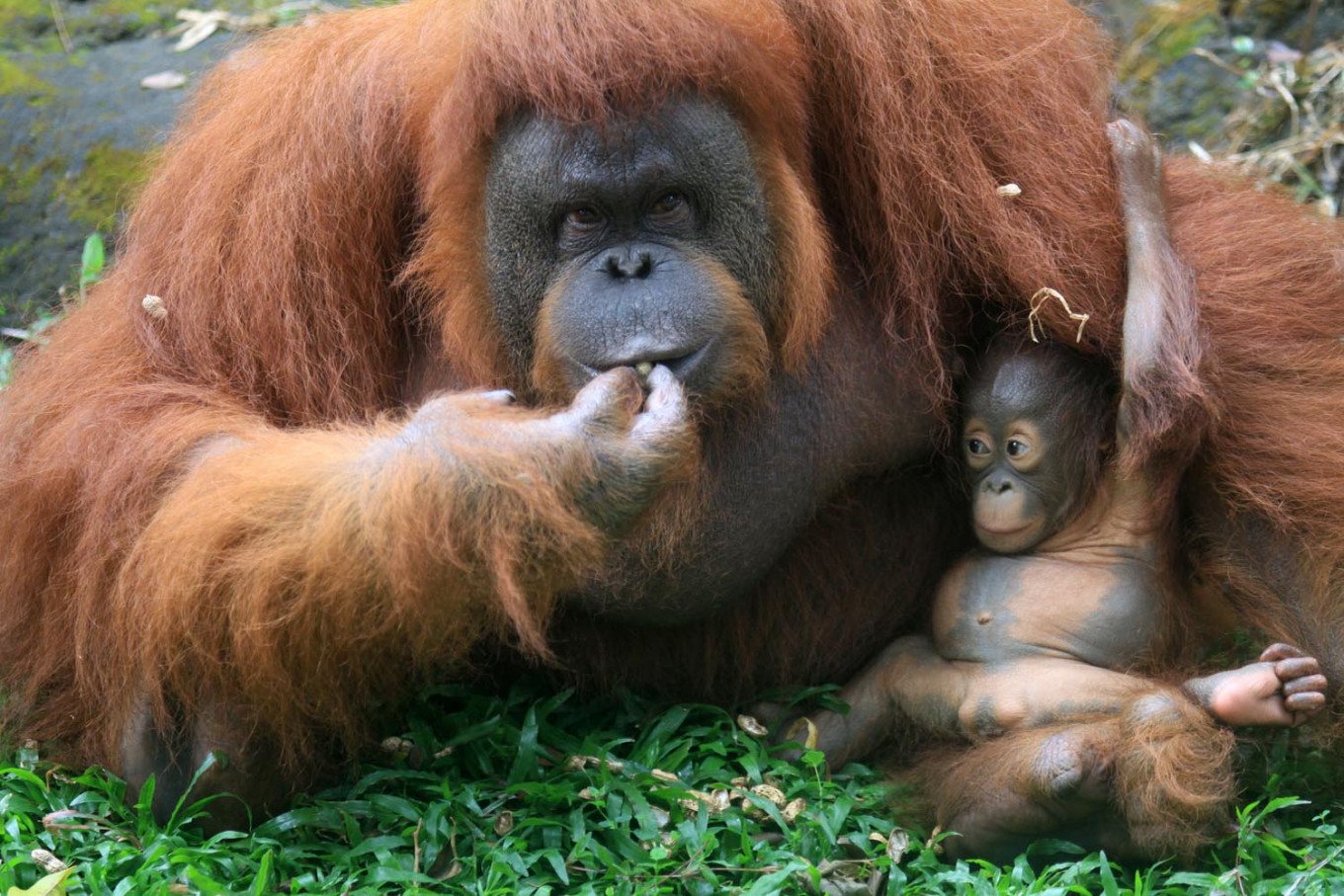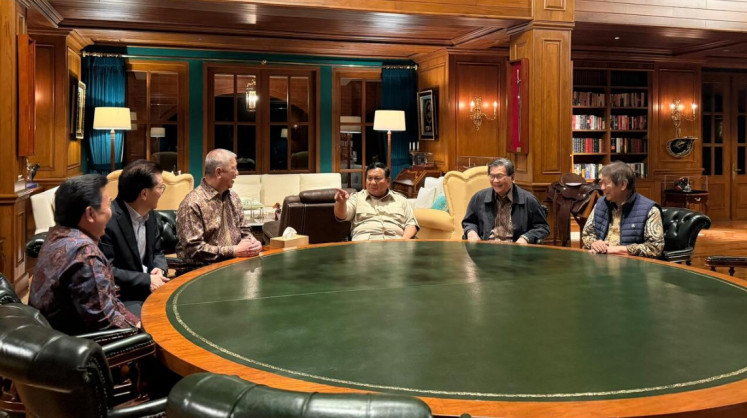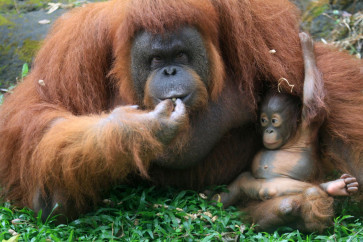Popular Reads
Top Results
Can't find what you're looking for?
View all search resultsPopular Reads
Top Results
Can't find what you're looking for?
View all search resultsDo orangutans need humans, or vice versa?
Orangutans are an umbrella species, which means that in protecting them, we indirectly protect other fauna and flora that live in the same ecosystem.
Change text size
Gift Premium Articles
to Anyone
“You’re going to such great lengths just for orangutans,” my children commented as I got ready to leave the house in my orangutan-related attire. On almost every occasion, I would wear something promoting orangutan conservation: a T-shirt, backpack, hat or luggage bearing the logo of the Borneo Orangutan Survival (BOS) Foundation, as well as our uniform that has a close-up of an orangutan’s face on it.
It is my way of making a statement, promoting and campaigning about the importance of orangutans in the hope that someone would notice, observe and eventually want to have orangutan-related merchandise. For me, this is business as usual and not going to any great lengths for orangutans.
Most people would probably think the same as my children do. Especially when planning for Orangutan Day, a special day that falls on Aug. 19, they say that it’s too much, how me and all staff at the BOS Foundation continue to dedicate ourselves to orangutans and conserving their habitat, as well as in celebrating orangutan conservation efforts.
After all, doesn’t circling a date on the calendar mean something important is happening that day? Moreover, Orangutan Day was established out of concern over the chaotic efforts in orangutan conservation, including fragmented habitat conservation, which exacerbates the threat to all wildlife, ranging from illegal hunting to losing some of Indonesia’s endangered great apes that play an important role in our rainforests, especially in Kalimantan and Sumatra.
Orangutan Day is not about romanticizing how cute a baby orangutan is. The basic question we ask ourselves when celebrating Orangutan Day is: “Do orangutans need humans, or do humans need orangutans?”
This question is not mere empty words spoken from a podium or displayed on banners: It is reflection. We need to reflect on existing issues and consider which actions we need to take, because time is not on our side. We are far behind and whether we like it or not, we need to catch up and fix all the issues jeopardizing our planet for all earthlings, as human beings are not the only living creatures on Earth.
No matter how big, glamorous or grand the Orangutan Day celebration may be, it will have no meaning if we cannot follow up with concrete action to save orangutans.


















